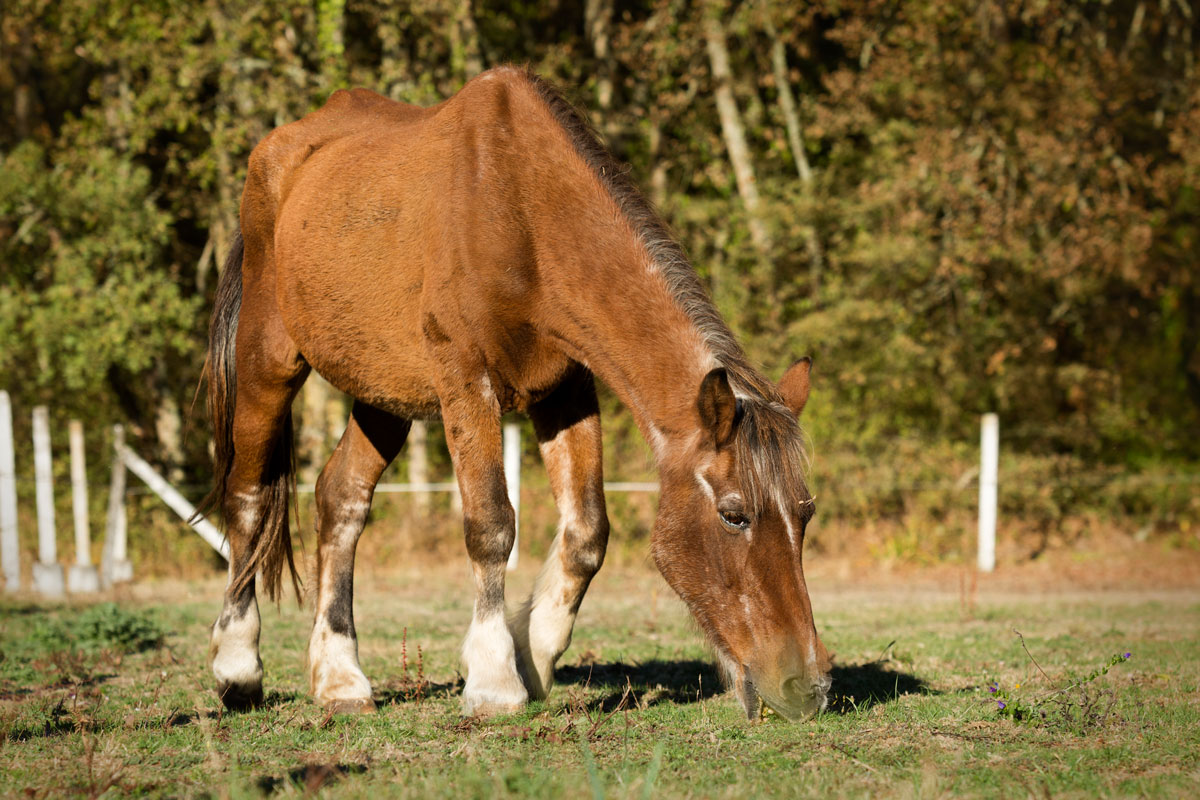
Your 20-year-old gelding is starting to look more like a senior citizen—with more sway in his back and less bounce to his step. Horses generally don’t become senile, or as physically frail as elderly humans (unless they have a health problem), but there are some changes that occur as they grow older. These changes occur sooner in some horses and later in others depending on various factors, including genetics.
Dr. Tia Nelson, a veterinarian who also owns horses near Helena, Montana, said many horses in the 18- to 25-year-old range might be considered older horses but might not be geriatric yet (needing special care). Some horses start to show signs of aging as early as 15 or 16, and some don’t look old until they are in their late 20s or older.
“My first horse was 27 years old, and she would still happily buck me off!,” said Nelson. “Horses are like people; some people are old when they are 60 and some don’t seem very old at 80. My husband is 71, and people can’t believe he is that old.”
Humans age at different rates and so do horses.
“It is definitely genetic because some breeds are known for lasting longer than others, and there are family lines in every breed that live longer,” she said.
Some of this might depend on whether they are easy keepers or hard keepers, or how fast their teeth wear out. Every horse is different, and you can’t just go by calendar age.
Signs of old age include swaying of the horse’s back due to weakening of the supraspinous ligament that supports the back. You might also see weakening of tendons in the legs, allowing the fetlock joint to drop lower toward the ground, especially in the hind legs.
Other signs of aging include more gray hairs (especially around the eyes and face), drooping lower lip, sunken eyes, along with more stiffness in the joints. Arthritis might make it painful for the horse to perform athletically or even to get up and down. Health and body condition should be monitored, since there are a number of issues that might need to be recognized and addressed when caring for older horses—and certain individuals might have more problems.
“My goal with older horses is that they live well and are healthy and robust, until one day they are not, rather than a lingering, drawn-out downhill slide,” Nelson said.
Most horses tend to stay reasonably healthy, active and sound through old age, then decline more quickly at the end compared to humans who often deteriorate more gradually. Sometimes we can postpone that decline in an older horse with good care.
“When it comes to the point that the horse is suffering, however, and you can’t do anything to make them better, the kindest thing is euthanasia,” said Nelson. “If it’s hard to make that decision yourself, ask your veterinarian for help in determining if this is now the best thing to do.”
Sometimes the horse might be able to go on with diligent care—such as a horse with no teeth or a horse with metabolic problems that needs special care and medication.
“It may come down to how much time, energy and money you have to deal with a certain issue,” said Nelson. “Or, when you know the horse really well, you may have a gut feeling about when the end should come (if quality of life for that horse is diminishing). Often your intuitions are pretty accurate.”



